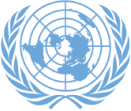Statement by His Excellency Mr. Michael Ten-Pow
Permanent Representative of the Co-operative Republic of Guyana
On behalf of the Caribbean Community (CARICOM)
Second Committee of the General Assembly
Agenda items 26: Agricultural development, food security and nutrition
Friday, 12 October 2018
Thank you, Mr Chairman,
I have the honour to speak on behalf of the 14 Member States of the Caribbean Community (CARICOM) who associate themselves with the statements made by Egypt on behalf of the Group of 77 and China, the Maldives on behalf of AOSIS, and El Salvador on behalf of CELAC.
Mr. Chairman,
The earthquake a few days ago in Haiti is yet another reminder of the vulnerability of the small island and low-lying coastal States of the Caribbean Community. The destructive impacts of climate change – increasingly frequent and severe tropical storms, droughts, floods – pose an ongoing threat to the region’s agricultural infrastructure and thus to its food and nutritional security. Building resilience to these shocks, including through climate-sensitive agricultural practices, water management schemes and drought and flood-resistant seeds, is therefore now being articulated as a major developmental objective within the framework of Sustainable Development Goal 2: “To end hunger, achieve food security, improve nutrition and promote sustainable agriculture”.
Mr. Chairman,
Nearly all CARICOM Member States began their journey to independence and statehood centuries ago as European colonies with plantation-type agricultural economies. Today, however, agriculture accounts for a declining share of the GDP of most CARICOM countries, even though it remains the major economic land-use activity in many of them and provides significant employment opportunities in a region where high unemployment continues to be a major concern.
Changing the underlying dynamics of the agricultural sector by putting in place the necessary technical, infrastructural and incentive frameworks needed to spur innovation and higher productivity is therefore an imperative for the region today. The Common Agricultural Policy adopted by CARICOM lays the basis for transforming the agricultural sector and improving food and nutrition security in the region. Within the framework of the region’s Single Market and Economy, the policy seeks to increase agricultural exports, satisfy domestic demand for food, establish links with other sectors, particularly tourism, and increase employment. Our efforts to turn the Caribbean into the first region resilient to climate change are supported by our international partners, including the Inter-American Institute for Cooperation in Agriculture, which recognizes the region’s vulnerability to climate change and, as the organization entrusted with promoting agricultural development in the Americas, focuses on creating a more productive and resilient agriculture.
With limited exceptions, notably Guyana, which has an abundance of fresh water supplies and arable land, the precarious nature of agriculture in most CARICOM Member States has meant that food availability is increasingly dependent on imports. Imports discourage domestic suppliers, undermine food and agricultural development, and result in increased consumption of processed foods. Consumption of processed foods in turn contributes to the high levels of obesity and non-communicable diseases now being observed in the region. Nearly all CARICOM countries import more than 60 per cent of the food they consume with total imports into the region now amounting to more than $4 billion each year, an increase of 50 per cent since 2000. This figure is projected to increase to between 8 and 10 billion dollars per year by 2020 if current efforts to address the imbalance are not successful. Processed foods, grains and livestock products are among the top five food import categories, accounting for approximately 25 per cent of the region’s annual food imports. One promising new development has been the use of locally grown cassava as a viable substitute for imported wheat and corn products. A regional cassava working group, in partnership with FAO, the Inter-American Institute for Cooperation in Agriculture, and the Caribbean Agribusiness Association, has been pushing for greater investment in cassava production in the Caribbean. It is estimated that the substitution of cassava alone has the potential to reduce the region’s food import bill by 5 per cent.
CARICOM Member States recognize that sustainable agricultural production, food security, and food safety and nutrition are key elements for the eradication of poverty in all its forms and dimensions. In the Caribbean, food access is linked to poverty, which has been increasing in several countries of the region. In half of the Member States of CARICOM, more than 30 per cent of the population are below the national poverty line. With assistance from FAO and other partners, regional Governments are encouraging youth involvement in agriculture through initiatives such as social media training and financial investment, in the knowledge that encouraging young agricultural entrepreneurs is a key factor for ensuring food security.
The challenges facing the agricultural sector, however, cannot be met without a rules-based, open, non-discriminatory and equitable multilateral trading system to promote agriculture and rural development in developing countries. We therefore join the call for urgent strategies at all levels to promote the inclusive participation of farmers, including women, in community, national, regional and international markets.
We also need the cooperation of our partners to put an end to illegal fishing in the EEZ of CARICOM Member States, which is resulting in the rapid depletion of both the diversity and quantity of fish stocks. FAO estimates that from 20 to 30 percent of fishing in Caribbean waters, worth an annual $750 million, is illegal, unreported and unregulated.
The picture I have presented, Mr. Chairman, is dire in terms of the challenges we face from the impacts of climate change, our vulnerabilities to external shocks, including the de-risking and blacklisting of our regional banks, and our high debt burdens that leave no fiscal space for investment in agricultural development. But it is also a picture of hope because we know what needs to be done to take us to where we want to be. And to get there, we must begin, with the help of our international partners, by building resilience to the impacts of climate change in order to lay the foundations for sustainable solutions to the challenges of agricultural development, food security and nutrition in the CARICOM region.
I thank you.


